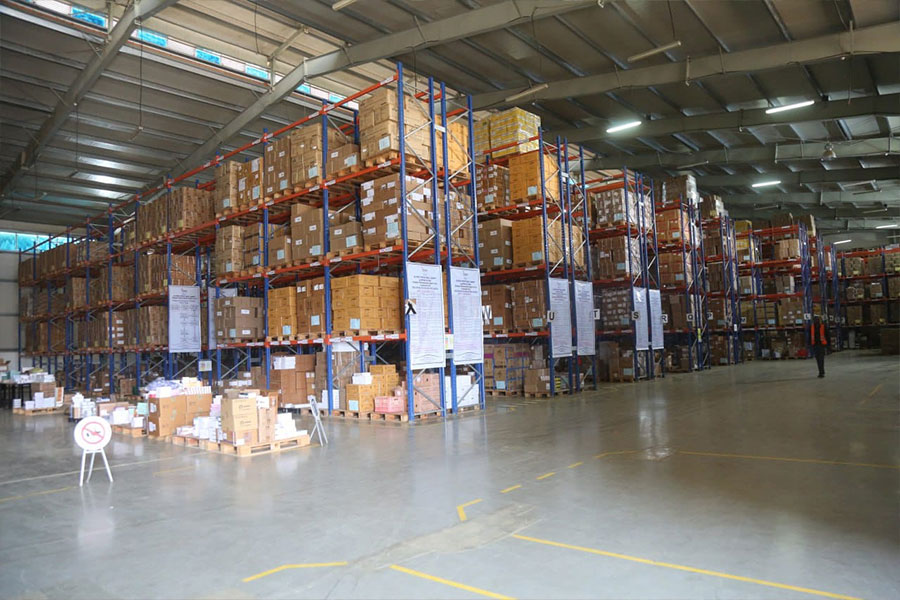
Fortune News | Jan 03,2025
Jun 10 , 2023
By Ricardo Hausmann
Greenhouse gas emissions (GHG) are too high to stop catastrophic changes to our climate. Countries, companies, and families must be made aware of the planet's fragility, writes Ricardo Hausmann, a professor at Harvard University's John F. Kennedy School of Government, in this commentary provided by Project Syndicate (PS).
Greenhouse gas emissions (GHG) are too high to stop catastrophic changes to our climate. Countries, companies, and families must be made aware of the fragility of the planet we live in.
As that is happening: Analysts are busy estimating the cost of the energy transition, and environmentally sustainable growth (ESG)-minded investors are organizing financial vechiles to fund green projects. A growing number of economists want to tax carbon to encourage substitution away from it. Others focus on ensuring that the costs of the clean-energy shift do not fall disproportionately on developing countries, which are now expected to forgo cheap (albeit dirty) energy sources despite accounting for far lower GHG emissions – both historically and currently – than their developed counterparts.
The United Nations Framework Convention on Climate Change (UNFCCC) asks countries to announce their Nationally Determined Contributions (NDCs) and hopes that social pressure will force them to deliver on those promises.
These strategies for promoting the clean-energy transition – moral persuasion, price signals, and additional funding – have one thing in common: they focus on bolstering global demand for decarbonization.
The supply side, however, is conspicuously absent from the conversation. Every time someone makes a purchase, someone else makes a sale; one person's spending is another person's earnings. While the demand-side approach emphasizes buying and spending, it overlooks the crucial dynamics of selling and earning. This renders the entire endeavour inefficient, unfair, and politically challenging.
Focusing solely on demand-side factors is short-sighted. Rising demand for decarbonization, without a corresponding increase in the supply of essential enablers such as cables, batteries, electrolyzers, electric vehicles, green steel, fertilizers, and fuel cells, would merely lead to higher prices and enrich incumbent suppliers.
For example, the UNFCCC and its NDCs steer Bolivia toward decommissioning its thermal power plants but do nothing to capitalize on its lithium reserves, the world's largest. More broadly, countries are being urged to concentrate on their own emissions, rather than contribute to the effort to reduce global emissions by expanding the production of decarbonization enablers.
This exclusive focus on the demand side of decarbonization is also financially inefficient. It directs available capital toward big emitters rather than toward potential suppliers of decarbonization resources.
A case in point is the World Bank's "Just Transition for All" initiative, which provides financing for countries that retire coal-fired power plants. The Just Energy Transition Partnership that has been announced so far have targeted major coal consumers such as Indonesia, South Africa and Vietnam but does not channel support to countries that could contribute on the supply side, such as Bolivia, Chile, the Democratic Republic of the Congo, Egypt, Morocco, and Namibia. These countries could be crucial in advancing decarbonization by developing their mineral, solar, and wind resources or expanding their production of batteries, EVs, and green ammonia.
So far, the just energy transition has primarily focused on mitigating the losses experienced by workers in the fossil-fuel industry and managing the additional costs associated with shifting away from these energy sources. But the clean-energy transition will likely have significantly broader distributive effects.
Energy-importing countries currently incur heavy costs to purchase coal, oil, and gas, thereby enriching exporters of those resources. Now, they are being urged to import decarbonization enablers instead of becoming suppliers themselves. But in the absence of measures to enhance these countries' ability to finance their imports through increased exports, this amounts to adding one type of import to another.
A green world powered by solar, wind, biomass, and hydro energy would result in a more equitable production distribution favouring regions like the tropics and arid areas such as the Sahara, Sonoran, Namib, and Atacama Deserts. Because oil is so cheap to transport, it made the world energetically flat, enabling energy-intensive industries such as steel and chemicals to operate in energy-importing countries such as Japan, Korea, and Germany.
But this is unlikely to remain sustainable in a green world. Given that renewables are much more expensive to transport than oil, energy-intensive industries will likely seek to relocate closer to affordable energy sources.
The current approach to decarbonization neglects to promote such relocation to renewable-rich regions, many of which are in the Global South, thereby squandering the opportunity to make the world greener and more equal. By focusing on the major coal-consuming countries, the Just Energy Transition framework does little to address global inequality effectively.
A strategy encompassing both the demand and the supply side of decarbonization would foster much broader coalitions in favour of an accelerated transition. If countries could carve out a role for themselves as suppliers of decarbonization enablers, they would be incentivised to push for a world that relies on their new exports.
Compare that incentive with the notion that installing solar panels alone would generate enough jobs to justify the clean-energy transition. Those jobs could never become an engine of growth because the majority of spending goes toward the producers of solar panels. Conversely, becoming the suppliers of the world's decarbonization resources would enable developing countries to create new national and regional income streams, facilitating widespread job growth across their entire economies.
The prevailing strategy to reduce GHG emissions risks rendering the clean-energy transition inefficient, costly, unfair, and politically contentious, whereas a strategy that gives equal weight to the supply and demand sides would reduce costs, promote fairness, and win greater political support. This approach would marshal countries' creative potential by broadening their focus from their own emissions to supplying the needs of a decarbonizing world.
That is a growth strategy for all and a more compelling and energizing call to action.
PUBLISHED ON
Jun 10,2023 [ VOL
24 , NO
1206]


Fortune News | Jan 03,2025

Sunday with Eden | Nov 30,2019

My Opinion | Oct 07,2023

Fortune News | Jun 12,2021

Fortune News | Jan 18,2020

Fortune News | Jun 25,2022

Fortune News | Feb 02,2019

Fortune News | Nov 29,2020

Advertorials | Dec 01,2024

My Opinion | Apr 28,2024

My Opinion | 131499 Views | Aug 14,2021

My Opinion | 127855 Views | Aug 21,2021

My Opinion | 125833 Views | Sep 10,2021

My Opinion | 123463 Views | Aug 07,2021

Dec 22 , 2024 . By TIZITA SHEWAFERAW
Charged with transforming colossal state-owned enterprises into modern and competitiv...

Aug 18 , 2024 . By AKSAH ITALO
Although predictable Yonas Zerihun's job in the ride-hailing service is not immune to...

Jul 28 , 2024 . By TIZITA SHEWAFERAW
Unhabitual, perhaps too many, Samuel Gebreyohannes, 38, used to occasionally enjoy a couple of beers at breakfast. However, he recently swit...

Jul 13 , 2024 . By AKSAH ITALO
Investors who rely on tractors, trucks, and field vehicles for commuting, transporting commodities, and f...

Jun 28 , 2025
Meseret Damtie, the assertive auditor general, has never been shy about naming names...

Jun 21 , 2025
A well-worn adage says, “Budget is not destiny, but it is direction.” Examining t...

Jun 14 , 2025
Yet again, the Horn of Africa is bracing for trouble. A region already frayed by wars...

Jun 7 , 2025
Few promises shine brighter in Addis Abeba than the pledge of a roof for every family...

Jun 29 , 2025
Addis Abeba's first rains have coincided with a sweeping rise in private school tuition, prompting the city's education...

Jun 29 , 2025 . By BEZAWIT HULUAGER
Central Bank Governor Mamo Mihretu claimed a bold reconfiguration of monetary policy...

Jun 29 , 2025 . By BEZAWIT HULUAGER
The federal government is betting on a sweeping overhaul of the driver licensing regi...

Jun 29 , 2025 . By NAHOM AYELE
Gadaa Bank has listed 1.2 million shares on the Ethiopian Securities Exchange (ESX),...